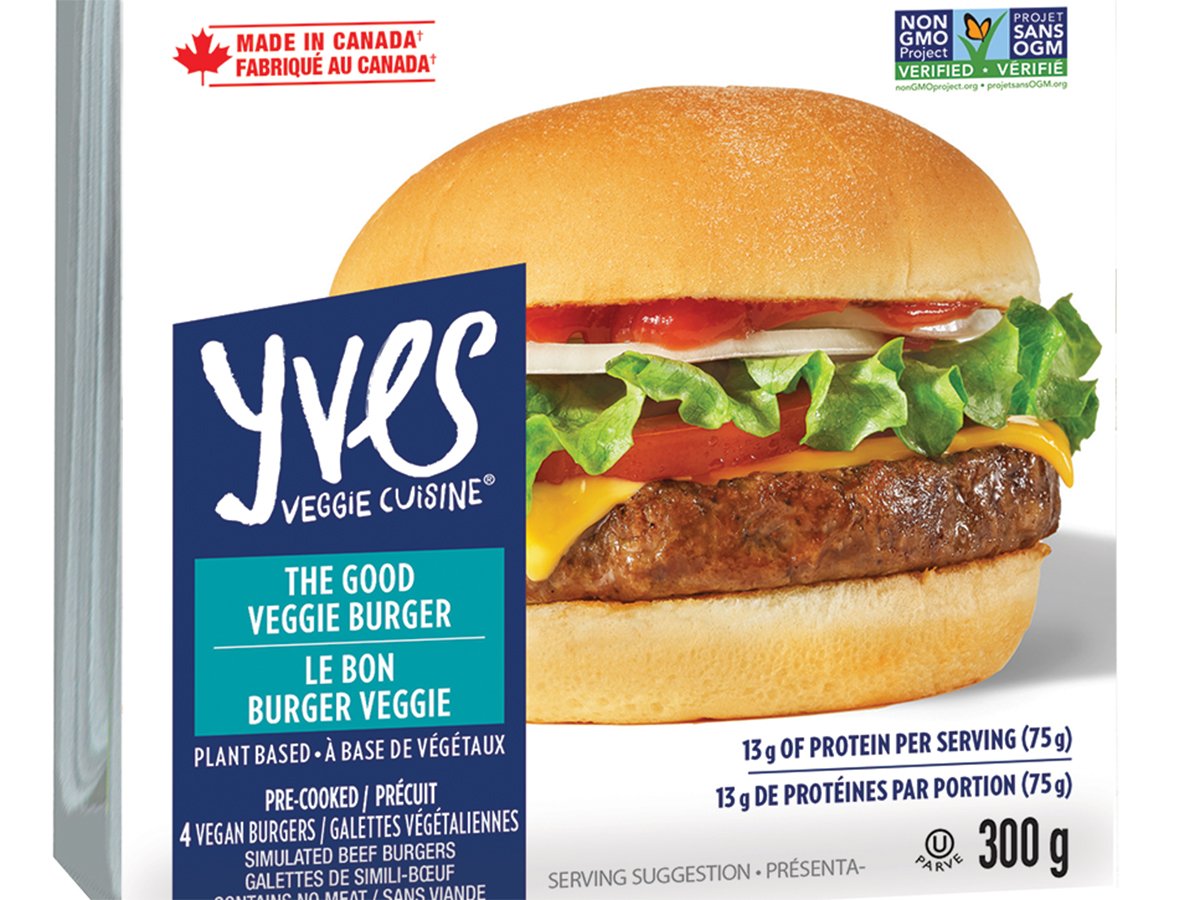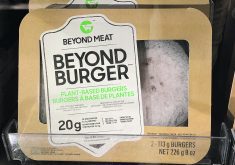WINNIPEG — Companies and leaders in Canada’s plant based food industry received another wake-up call this summer.
Yves Veggie Cuisine, which was founded in 1985 and sold veggie hot dogs and deli “meats” for 40 years at Canadian grocery stores, made a surprising decision in late August.
“Unfortunately, we are announcing that Yves will begin its farewell from store shelves,” Yves said on its website.
Read Also

Sustainable food has ‘lost all meaning’: prof
That marketing strategy is deader than a doornail, says a University of Guelph professor who specializes in consumer preferences and perceptions of agriculture and food.
“Thank you for your loyalty and support over the years, and we’re honoured to have been part of your plant-based journey.”
Hain Celestial Group, the U.S. firm that owns the Yves brand, told CBC News that the “meat free” category has been in decline for several years, so the company made the difficult choice to pull Yves Veggie Cuisine products.
The Yves announcement is part of a larger trend in North America, in which meat made from plants has failed to meet financial expectations.
The story is easily told by the stock market chart for Beyond Meat, a company from California.
In January 2021, Beyond Meat traded at US$180 per share. As of Oct. 6, it was valued at $2.38, a 98 per cent drop.
Some food industry analysts view the decline of plant-based meats as a disaster, but people in the sector see it differently.
It represents a turning point for an industry that is maturing, said Leslie Ewing, executive director of Plant Based Foods of Canada.
“When plant-based first captured national attention, the spotlight was on burgers and nuggets designed to mimic meat…. But the sector has outgrown its origins,” Ewing said in a September blog post.
“Today, plant-based foods stretch far beyond patties. Oat and soy-based dairy, tofu and tempeh, bakery items, beverages, snacks and innovative staples like lentil pasta or oat yogurt (are some examples).”
Canadian companies that produce agri-foods and ingredients are trying to tap into this new opportunity. Protein Industries Canada, which has a mandate to support production and sales of plant based foods and ingredients, held its annual meeting in Winnipeg in September.
At the meeting, several speakers said meat replacement products are not connecting with consumers.
“Some of these analogs … the burgers and things, where we’re trying mimic other products, I’m not sure that’s what customers are looking for,” said Mike Von Massow, who studies food supply chains and consumer perceptions at the University of Guelph.
“Some of our research shows … ‘give me something that’s interesting, give me something that tastes good, give me something that’s healthy and I don’t care if I’ve ever eaten it before.’ ”
That may be true, but most consumers care deeply about price and value.
If the price of oat milk is $5.50 per container and dairy milk costs $4, the $1.50 difference may prevent many people from trying oat milk.
Consequently, plant-based food companies must meet the needs of different segments of consumers, Ewing said.
Plant based should pursue a dual strategy: provide premium products that attract “discerning” consumers and affordable options for the “cost conscious,” she wrote earlier in 2025.
“After the rush of early attention, plant-based is now focused on what matters most: taste, value, and credibility,” Ewing said in September.
The credibility piece has been challenging because many plant based foods are heavily processed. An Yves’ veggie burger, for instance, contains more than 25 ingredients.
Getting past the “overly processed” hurdle is an issue, but the sector has other marketing challenges.
When people are at the grocery store or at a restaurant, they make decisions that are based on emotions, said Richard LaBonte, who works for Roquette, which operates a pea protein plant in Portage la Prairie, Man.
Plant-based foods are not marketed “very well” and sometimes don’t connect with personal feelings about food, Labonte said
“We have to tie into the emotions of why people eat what they do.”


















